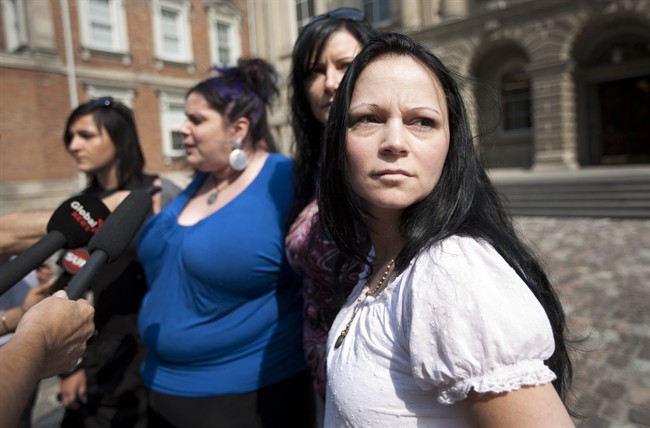While the provincial government passed its legislation to better protect people forced into the sex-trade from their traffickers, social agencies in London had their own conversation about boosting support systems for survivors.

“Instead of only having an individual agency approach, we’re trying to come together as a group to provide a better community response,” said Aura Burditt, an outreach worker with the Salvation Army who attended the first day of a workshop called “Human Trafficking: A Community Response.”
The two-day workshop is hosted by Victim Services Middlesex-London, in partnership with the London Police Crisis Intervention Victim Support Unit. It’s being led by guest speaker and human-trafficking survivor Timea Nagy, who immigrated to Canada from Hungary in 1998, and was forced into the sex trade in Toronto.
“She’s a survivor, and therefore the things that she’s telling us about how she felt and what she experienced is very real-life,” said Victim Services Acting Executive Director Brad Thompson.
Frontline law enforcement and social service workers are also learning how to identify signs of human trafficking, and about different methods to help victims of the human trafficking trade, according to Thompson.
Although human trafficking is a problem throughout the province, London is considered a hub for activity in part because of its proximity to the 401 corridor.
At the start of the year, the London Police Service launched its new Human Trafficking Unit. They’ve also reported a dramatic rise in the number of charges laid in human trafficking cases; there were 74 charges laid in 2016, compared to 44 charges in 2015, and 25 in 2014.
As local agencies learned about unifying support systems to better assist human trafficking survivors, the Ontario government passed its Anti-Human Trafficking Act, enabling victims to apply for restraining orders, and to sue their traffickers for compensation through civil court.
The legislation also names February 22 of each year as Human Trafficking Awareness Day.








Comments